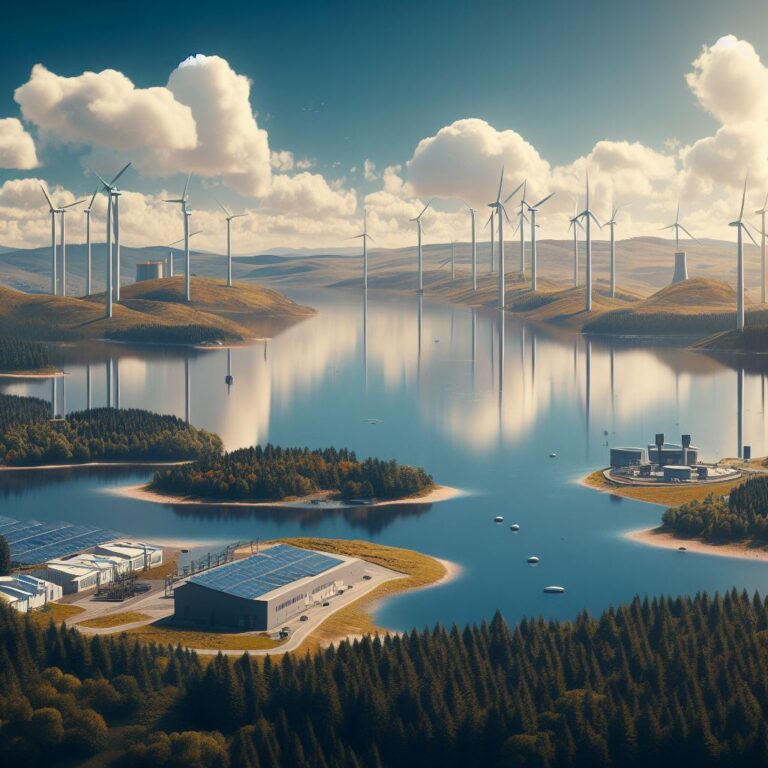Project Description
The concept of a hydrogen economy has been gaining traction in recent years as a potential accelerator towards decarbonization and achieving net-zero carbon societies [1]. In this context, green hydrogen, produced through the electrolysis of water using renewable energy sources (i.e., electricity from wind and solar power), has emerged as a promising net-zero energy vector for various applications, such as transport, heating, and industrial power. Scotland, with its abundant renewable energy resources, has the potential to become a key player in the development of a worldwide hydrogen economy, simultaneously securing domestic power supply and exporting excess of renewable energy [2].
Despite its potential, there are still significant challenges and unknowns associated with the implementation of a hydrogen economy at large scale, particularly from the environmental and social perspectives. One major challenge is the availability and quality of water resources in, which are critical for hydrogen generation through electrolysis [3].
This doctoral project aims to address these challenges by investigating the feasibility and impacts of a hydrogen economy in Scotland from an environmental perspective, with a focus on water resources. The project will adopt an interdisciplinary approach, drawing on knowledge from environmental science, engineering, economics, and policy.
The project will begin with a literature review to provide a comprehensive update on the progress and potential of establishing a hydrogen economy in Scotland (and the wider UK), its potential benefits, regulatory challenges, and the current forecast/scenarios for hydrogen demand by different sectors (Objective 1). The literature review will then result in a semi-quantitative measure of the potential for green hydrogen generation in Scotland using freshwater electrolysis and an initial step to assess the water resource availability and quality and its relevance for hydrogen generation.
A set of case studies will be designed based on different global and national scenarios of hydrogen generation, water demand, and climate change where catchments and water electrolysis facilities will be selected within Scotland (Objective 2). For each catchment different balances will be carried out in terms of mass (water/hydrogen), energy (power required and hydrogen high heating value available) and cost (considering the cost of hydrogen/energy and green electricity). The calculations/modelling will incorporate the findings obtained at the HydroGlen Renewable Hydrogen Powered Farm, managed by Prof. Alison Hester at the Glensaugh Climate-Positive Farming Initiative.
Finally, the project will generate a matrix correlating the previous factors and outputs considered in our model (Objective 3). The main inputs will comprise water availability and quality, requirements for electrolysis (electrical power and availability, water specifications, efficiencies) and expected locations for hydrogen generation. These will be correlated to the following outputs: feasibility, benefits, impacts, and challenges of hydrogen generation and how this contributes towards achieving net-zero societies in Scotland. The implications of the research for policy and practice will also be discussed, along with recommendations for future research (for example: balancing green/blue hydrogen, decommissioning/reusing of existing O&G facilities for renewable generation, water/energy security balance).
CANDIDATE BACKGROUND
We are looking for a motivated and enthusiastic candidate with a 2.1 degree or higher in an earth/environmental sciences or engineering subject (e.g. environmental science/engineering, geology, geography, energy). The candidate should have some subject background in environmental science, water resources management, or energy engineering, and some practical experience in using computer models and/or analysing quantitative data. The candidate will join a multidisciplinary research team working on a project that aims to explore the nexus between water and energy in the context of transition to a hydrogen economy and sustainability.
The ideal candidate will have the following desirable skills:
- Completed an undergraduate dissertation in some area of environmental sciences, water resources management, and/or energy engineering.
- A master’s degree in an earth/environmental sciences subject (e.g. climate change, water resource management).
- Some experience in using programming languages such as Python or R.
- Some experience in quantitative research methods, such as optimization, simulation, and scenario analysis.
The candidate will be expected to conduct original and innovative research, publish high-quality papers, and present their findings at national and international conferences. The candidate will also have the opportunity to collaborate with other researchers and stakeholders from academia, industry, and policy sectors. The candidate will receive supervision and guidance from experienced and supportive academic staff and have access to state-of-the-art facilities and resources.
Photo credit to Dall.e 3
Supervisors
David Haro MonteagudoPrimary Supervisor: | Profile: David Haro Monteagudo Email: david.haromonteagudo@abdn.ac.uk Institution: University of Aberdeen Department/School: School of Geosciences |
Jennifer McKinleySecondary Supervisor: | Profile: Jennifer McKinley Email: j.mckinley@qub.ac.uk Institution: Queen's University, Belfast Department/School: School of Natural and Built Environment |
Additional Supervisor: | Dr Alfonso Martinez Felipe, University of Aberdeen, School of Engineering Email: a.martinez-felipe@abdn.ac.uk
Dr Thomas Muinzer, University of Aberdeen, School of Law / Aberdeen University Centre for Energy Law Email: thomas.muinzer@abdn.ac.uk
Dr Alison Hester, James Hutton Institute, Ecological Sciences Email: alison.hester@hutton.ac.uk
Dr Teresa McGrath, Queen’s University Belfast, School of Mechanical and Aerospace Engineering Email: teresa.mcgrath@qub.ac.uk |
References
[1] Parliament. House of Commons (2022). The role of hydrogen in achieving Net Zero. (HC 2022-2023 99). London: House of Commons.
[2] Energy and Climate Change Directorate (2022) Hydrogen action plan. Edinburgh: Scottish Government.
[3] Shi, X., Liao, X., Li, Y. (2020) Quantification of freshwater consumption and scarcity footprints of hydrogen from water electrolysis: A methodology framework. Renewable Energy 154, 786-796
QUADRAT Themes
- earth-systems
- environmental-management






















































